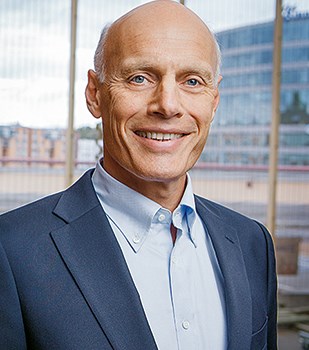GOTLAND, SWEDEN The flags fluttered in the sea breeze that funnelled along the streets and alleyways of the medieval town, as thousands of people trod a path between the varied range of seminars, debates and speeches. The Hanseatic town of Visby had been transformed for the annual market of political opinion that is Almedalen, a unique phenomenon and something to be proud of! It stands as the ultimate expression of a free, democratic and open society, a kind of society that most people will never come close to experiencing.
The three keywords that I have taken from the week of political events were sustainability, integration and building. There is clearly a growing understanding of the link between building and sustainability, for which read climate impact. To quote the chairman of the Swedish Parliamentary Committee on Environmental Objectives, Anders Wijkman, at a seminar that presented KTH Royal Institute of Technology and the IVL Swedish Environmental Research Institute’s study of the climate effects of constructing wooden apartment blocks in Strandparken, Sundbyberg: “Not using wood is crazy”.
At the Swedish Forest Industries Federation’s own seminar, the Stockholm Environment Institute presented its study on the bioeconomy (a sustainable economy based on renewable resources), what it means today and how we can make it grow by 2050. More extensive building in wood is a cornerstone of such a development.
One seminar that made an impression on me addressed young people’s opinions on a sustainable circular economy. Almost 80 percent of our younger citizens want to be part of such an economy, but they don’t know how they can contribute. We therefore have a responsibility to improve knowledge across the board when it comes to what we can do collectively and as individuals. Key here is the construction sector, not least because building has to increase in order to provide housing and infrastructure for the nation.
We in the construction industry have a particular responsibility both to broaden and deepen knowledge of wood generally and to ensure that the new generation of architects, designers and builders are well informed about wood and building in wood. It is therefore a pleasure to announce that, in partnership with Swedish Wood and the Swedish Federation of Wood and Furniture Industry, Chalmers University of Technology is establishing a professorship with a clear focus on wood. Knowledge builds sustainability.

